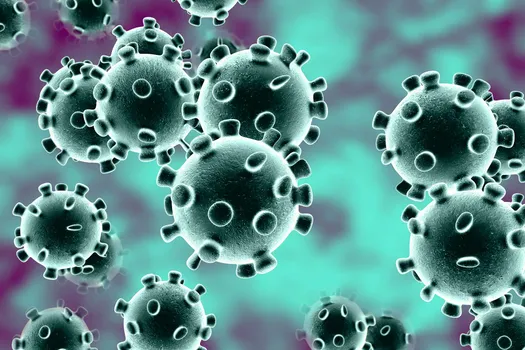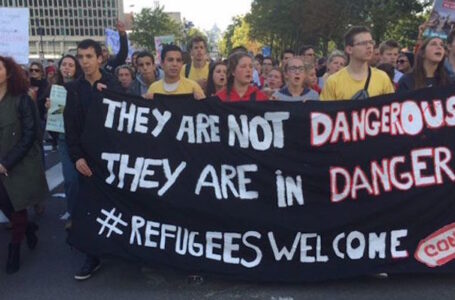Coronavirus 2020 Outbreak: Latest Updates

BIDEN’S BEST FRIEND

News about the coronavirus outbreak that started in Wuhan, China, is changing rapidly. The respiratory infection, named COVID-19 by the World Health Organization (WHO), is closely related to SARS and MERS. The majority of cases are no longer in China, and the disease has been diagnosed in more than 100 other countries, including the United States. We’ll provide the latest updates on cases, deaths, travel restrictions, and more here.
What is the latest news?
More States Tighten Restrictions as Coronavirus Rages
New Jersey, New York, Connecticut, California and Illinois have issued “shelter-in-place” orders that ask residents to stay home and request that non-essential businesses close.
In New Jersey, Gov. Phil Murphy issued a “stay-at-home” order Saturday.
“We know the virus spreads through person-to person contact, and the best way to prevent further exposure is to limit our public interactions to only the most essential purposes. This is a time for us all to come together in one mission to ‘flatten the curve’ and slow – and eventually halt – the spread of coronavirus,” Murphy said in a statement.
In Connecticut, Gov. Ned Lamont asked that all non-essential businesses close starting Monday at 8 p.m. and he urged residents to stay home and work from home is possible. The order does not include services such as health care and law enforcement.
Gov. J.B. Pritzker’s order will require all Illinois residents to remain at home except to go the grocery story, visit a health care professional, take walks and go to the drug store. Illinois has nearly 600 cases and five deaths.
New York’s order will go into effect Sunday night. In addition to banning non-essential services, it also bans any type of gathering for any reason, among other restrictions. New York has more than 8,500 cases and more than 50 deaths.
BREAKING: I just signed an Executive Order directing nearly all residents to STAY AT HOME.
ALL gatherings are canceled.
ALL non-essential retail businesses must indefinitely close their physical stores to the public effective 9:00 p.m. tonight.
More: https://t.co/JW1q8awGh7 pic.twitter.com/fmElyFwNtf
— Governor Phil Murphy (@GovMurphy) March 21, 2020
- Read New Jersey’s order here.
- Read Connecticut’s order here.
- Read New York’s order here.
- Read Illinois’ order here.
- Read California’s order here.
Pence Staff Member Tests Positive
One of Vice President Mike Pence’s staff members tested positive for COVID-19. Pence said he is doing well, and he did not have direct contact with the staff member. Even so, Pence and his wife will be tested Saturday afternoon.
More Tests, Not Sure of Progress from “Social Distancing” Measures Yet
In a White House briefing Saturday, President Trump and other officials said that testing for COVID-19 had expanded. At the same time, they said they did not know yet how much of an effect social distancing efforts are having on its spread.
The nation is at the 6-day mark in the 15-day Stop the Spread effort, which asked people to not gather in groups of more than 10, avoid restaurants and bars and to and stay home when sick. Since the guidelines were issued, many states and cities have shut down bars and restaurants.
“We know we are clearly having an effect but can’t quantify it now,” as that takes time to analyze said Anthony Fauci, MD, director of the NIH’s National Institute of Allergy and Infectious Diseases. The administration has said it will reevaluate the measures after the 15 days are over.
Pence said testing for the virus is “expanding rapidly.” More than 195,000 who have had symptoms have been tested, he said, and that number does not include county hospitals or health care labs.” The country has more than 22,000 confirmed cases, according to Johns Hopkins University.
On Saturday, the FDA issued the emergency use authorization for a COVID-19 test that can give results in 45 minutes. Cepheid, the test maker, expects to roll it out by March 30. It can be used on more t han 23,000 Cepheid automateed systems already in use worldwide,the company said.
Pence said they were also working to address shortages of masks and other personal protective equipment for health care workers.
Deaths Jump in Italy
Italian officials reported 793 additional deaths on Saturday, the largest single-day increase so far in that country, the New York Times reported. More than half of its cases and death have come in the past week. Over the past few days, Italy moved ahead of China as the country with the most deaths. The country has more than 53,000 cases and more than 4,800 deaths. The nation is under lock-down, which the army is helping to enforce.
How many people have been diagnosed with the virus, and how many have died?
According to Johns Hopkins University, there are more than 287,000 cases and nearly 12,000 deaths worldwide.
For the first time since the new coronavirus outbreak began in December, China — once the epicenter of what would become a global pandemic — reported no new domestic cases Thursday. The National Health Commission, however reported 34 new cases, all of which were imported from outside China. It’s been 81 days since the first case was announced in Wuhan, China. There have been more than 81,000 cases in China and more than 3,200 deaths there.
Italy now has more deaths from the new coronavirus than any other country. Italy, China and Iran are the countries with the most deaths.
A new study from the Italian national health authority reports that more than 99% of those who have died from the coronavirus there had other medical problems. However, the study only looked at the backgrounds of 18% of the nearly 3,000 people who have died, which means of the estimated 536 cases investigated, 531 had a pre-existing condition.
How many cases of COVID-19 are in the United States?
There are nearly 20,000 cases in the U.S. of COVID-19 and more than 160 deaths, according to data complied by Johns Hopkins University. See a map of cases and deaths by state here.
Washington, New York and California are the states with the most deaths in the U.S.
What travel restrictions are there?
The State Department has urged all U.S. citizens to avoid any international travel due to the global impact of the new coronavirus.
If you are currently overseas, the department wants you to come home, “unless [you] are prepared to remain abroad for an indefinite period,” according to a statement.
“Many countries are experiencing COVID-19 outbreaks and implementing travel restrictions and mandatory quarantines, closing borders and prohibiting non-citizens from entry with little advance notice,” the agency says.
In addition, the State Department says it will not issue any new passports except for people with a “qualified life-or-death emergency and who need a passport for immediate international travel within 72 hours.”he U.S. is banning all foreign travel to the United States from most of Europe for the next 30 days beginning midnight Friday, March 13. American citizens are not included in the ban. On Saturday, Trump said he would extend the ban to include the UK and Ireland.
The U.S. has also temporarily suspended non-essential travel to Mexico and Canada.
What are officials doing to help contain the virus?
Alex Azar, secretary of Health and Human Services, says there’s been tremendous progress on testing for COVID-19, the disease caused by the new coronavirus. He says tens of thousands of tests are being done every day.
But Anthony Fauci, MD, the director of the National Institute of Allergy and Infectious Diseases, says while testing is improving, the reality is that some people can’t get tests even though they have symptoms. He says he understands and sympathizes with people who would like to get the test and can’t. “We’re not there yet,” he says.
The U.S. is also working to fast-track possible anti-viral medications to treat COVID-19.
President Donald Trump said the U.S. is looking at the possible use of anti-malarial drugs called chloroquine and hydroxychlroquine for coronavirus. The drugs are also used now to treat rheumatoid arthritis.
Stephen Hahn, MD, the FDA commissioner, says potential COVID-19 treatments will be checked in large clinical trials. Hahn says the FDA will also look into making some potential medications available through “compassionate use” rules, which let some sick people use drugs outside a clinical trial.
“We need to get data to see if it works and it’s safe for people with COVID-19,” he says. He says serious harmful effects from the drugs are rare when taken for malaria, but we can’t be sure how people will react when they’re used for another disease, like COVID-19.
Hahn says vaccine trials are underway, but it could be at least 12 months until one is ready for the public. He also says the FDA is looking into the possibility of collecting blood samples from people who have recovered from COVID-19 to see if properties in them can provide immunity benefits to others.
Pence also says the U.S. is also working with industry to increase the number of N-95 respirators that can be used by health workers. He says millions of these masks could now become available.
Kathleen Dohney contributed to this report.















